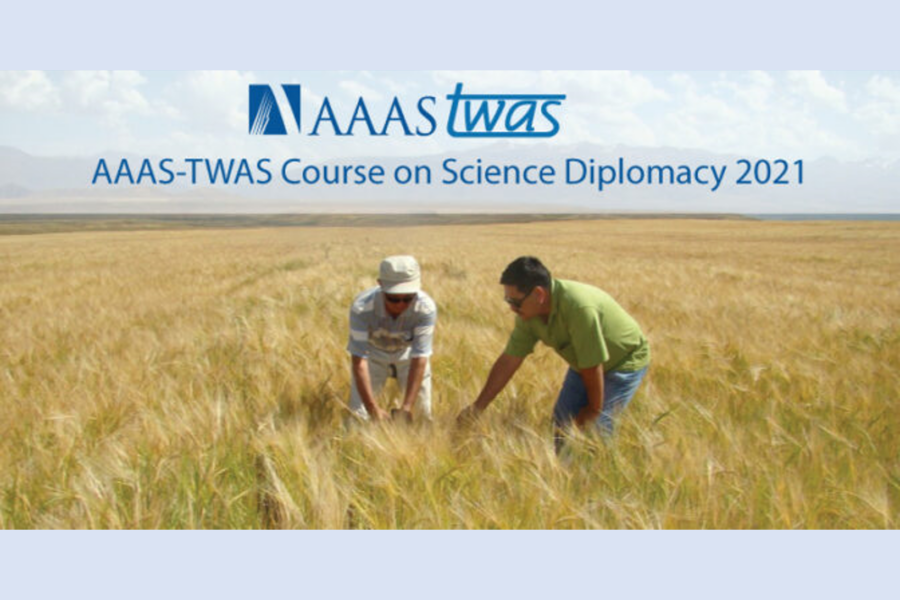Recounting the 2021 AAAS-TWAS Science Diplomacy Course

The AAAS-TWAS Course on Science Diplomacy was hosted online on 30 August to 3 September 2021. Four of the participants are also alumni of InsSciDE’s Warsaw Science Diplomacy School and two of them joined the course together as a ’participant pair’, formed by a young scientist and a local partner from the policymaking arena. We invited the group to share their experience below!
Read more about the AAAS-TWAS course here.
Learn about the two past editions of Warsaw Science Diplomacy School (WSDS) here.
By Laura Galvis Vargas, Luisa F. Echeverría-King, Jenice Jean Goveas, Muhammad Adeel
Louis Pasteur said “Science knows no country, because knowledge belongs to humanity, and is the torch which illuminates the world”. The 2021 AAAS-TWAS Science Diplomacy Course, breaking geographical boundaries, gave those words a new lease of life.
This workshop has been a major driver of science diplomacy education, with special emphasis on developing countries. This year’s course was the seventh edition, and it had an innovative twist of requiring participation in pairs: a young scientist and a policymaker. In total, 26 pairs representing countries across the Global South created a good mix of perspectives and an alumni network that will be interesting to follow.
The course had two simulation exercises that sought to put science diplomacy into practice through role-playing activities in scenarios of current global interest. Within the simulations we had to take into account various aspects such as: the interests of the country/entity being represented, transnational challenges and intercultural understanding.
The course also included presentations by active science diplomats, which provided insight into stakeholders present in this sphere as well as trends in health, emerging technologies and conservation. A key moment of the course was the panel discussion by science diplomats and policy practitioners on the different careers that can be pursued in this area. We believe that this panel was of great value to show the reality of different actors with diverse backgrounds and studies, how their professional paths led them to work at the intersection between science, diplomacy and in some cases public policy.
The pairs were a valuable addition to the program and could be exploited more fully in the next edition by also developing country-focused discussions between them and enabling reflections about science diplomacy in current roles. Furthermore, these courses are a wonderful space to bring together players that do not normally interact, and raise questions that are essential for the future of humanity.